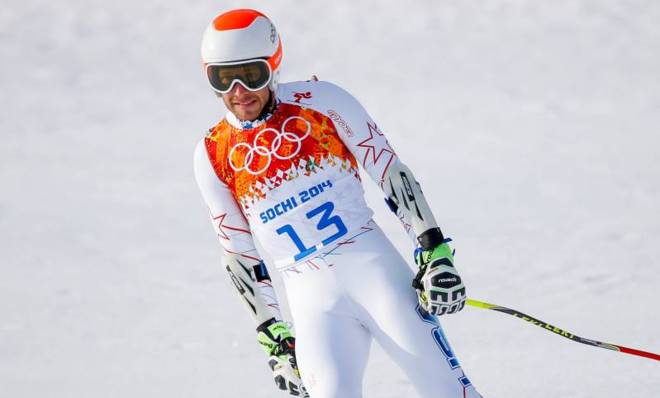Why we like to watch athletes cry


A free daily email with the biggest news stories of the day – and the best features from TheWeek.com
You are now subscribed
Your newsletter sign-up was successful
The thrill of victory. The agony of defeat. The grief of mourning?
Having watched NBC Olympics reporter Christin Cooper's interview with Bode Miller as it happened, I'll confess to two thoughts:
1. What a neat and sad spontaneous television moment.
The Week
Escape your echo chamber. Get the facts behind the news, plus analysis from multiple perspectives.

Sign up for The Week's Free Newsletters
From our morning news briefing to a weekly Good News Newsletter, get the best of The Week delivered directly to your inbox.
From our morning news briefing to a weekly Good News Newsletter, get the best of The Week delivered directly to your inbox.
2. Cooper handled the sensitive issue as sensitively as one should expect of someone whose job it is to elicit emotional responses from athletes. I mean that as a compliment.
Why the uproar?
For one thing, we have mixed feelings when we see strong people reduced to tears. Reduced to tears. Because tears, somehow, do not accord with the way we expect our athletes to emote. Tears are bad; they are associated with losing, or losing something. But such displays attract us, like car accidents do. A lot of people don't like public emotional catharsis. As crying is a very intimate act, it becomes uncomfortable for them to see people spontaneously cry on television. So they blame the instigator. But Cooper did not, in fact, bring up the sudden death of Miller's brother, although she surely knew it was on his mind. In fact, if you listen to every question she asks, it simply builds on what Miller is willingly telling her.
Cooper: Bode, such an extraordinary accomplishment, at your age, after a turbulent year, coming back from knee surgery, to get this medal today. Put it in perspective. How much does this mean to you?
A free daily email with the biggest news stories of the day – and the best features from TheWeek.com
Miller: I mean, it's incredible. I always feel like I'm capable of winning medals, but as we've seen this Olympics, it's not that easy. To be on the podium, this was a really big day for me. Emotionally, I had a lot riding on it. Even though I really didn't ski my best, I'm just super, super happy.
Cooper: For a guy who says that medals don't really matter, that they aren't the thing, you've amassed quite a collection. What does this one mean to you in terms of all the others.
Miller: This was a little different. You know with my brother passing away, I really wanted to come back here and race the way he sensed it. This one is different.
Cooper: Bode, you're showing so much emotion down here, what's going through your mind?
Miller: Um, I mean, a lot. Obviously just a long struggle coming in here. It's just a tough year.
Cooper: I know you wanted to be here with Chelly, really experiencing these Games. How much does this mean to you to come up with this great performance for him? And was it for him?
Miller: I don't know if it's really for him but I wanted to come here and, I dunno, make myself proud, but ... (trails off)
Cooper: When you're looking up in the sky at the start, we see you there and it looks like you're talking to somebody. What's going on there?
This is when television taps into our emotional core. It's easier to put ourselves in the place of an athlete like Miller when he begins to cry. We can't ski like he does. We can, however, imagine what it's like to lose a brother.
And of course, crying itself is associated with joy and grief.
We laugh until we cry. We cry when someone we know wins a prestigious award. We sometimes cry when we live up to our standards. We tend to cry when we finish a major assignment.
Crying, it turns out, really is — or can be — an outlet for anxiety and stress. Like, it removes built-up stress.
As humans, crying gets our attention. TV producers know that. But so do the athletes that submit themselves to interviews at cathartic moments.
Marc Ambinder is TheWeek.com's editor-at-large. He is the author, with D.B. Grady, of The Command and Deep State: Inside the Government Secrecy Industry. Marc is also a contributing editor for The Atlantic and GQ. Formerly, he served as White House correspondent for National Journal, chief political consultant for CBS News, and politics editor at The Atlantic. Marc is a 2001 graduate of Harvard. He is married to Michael Park, a corporate strategy consultant, and lives in Los Angeles.
